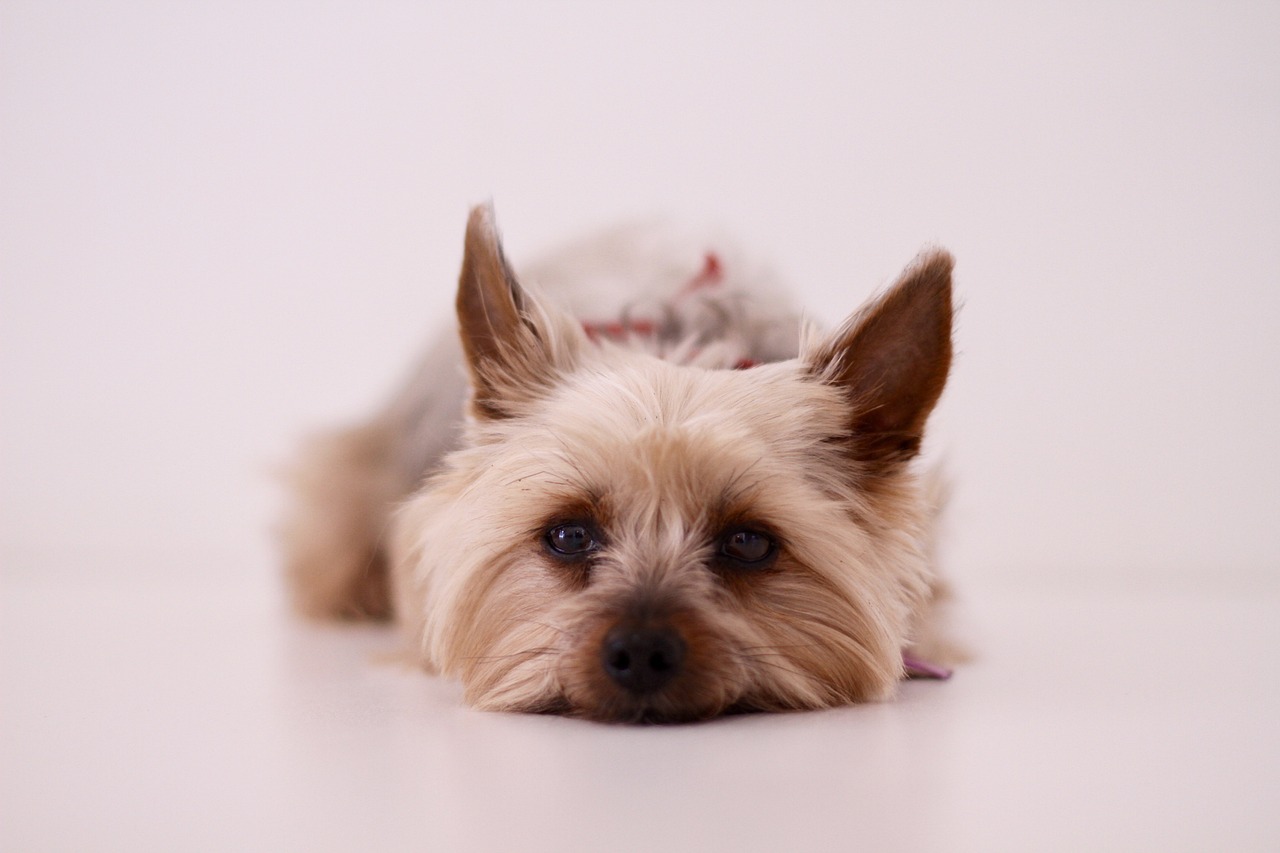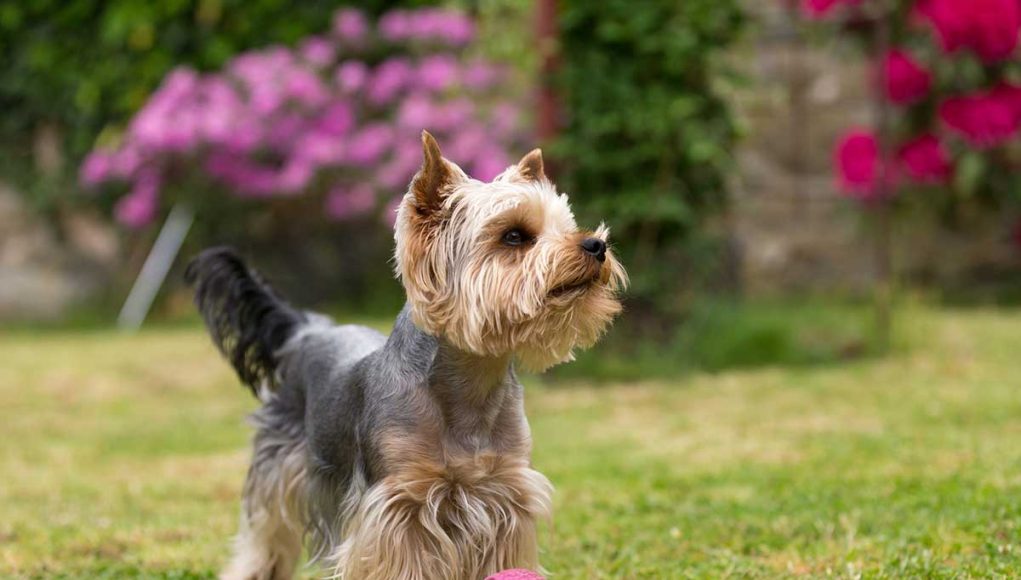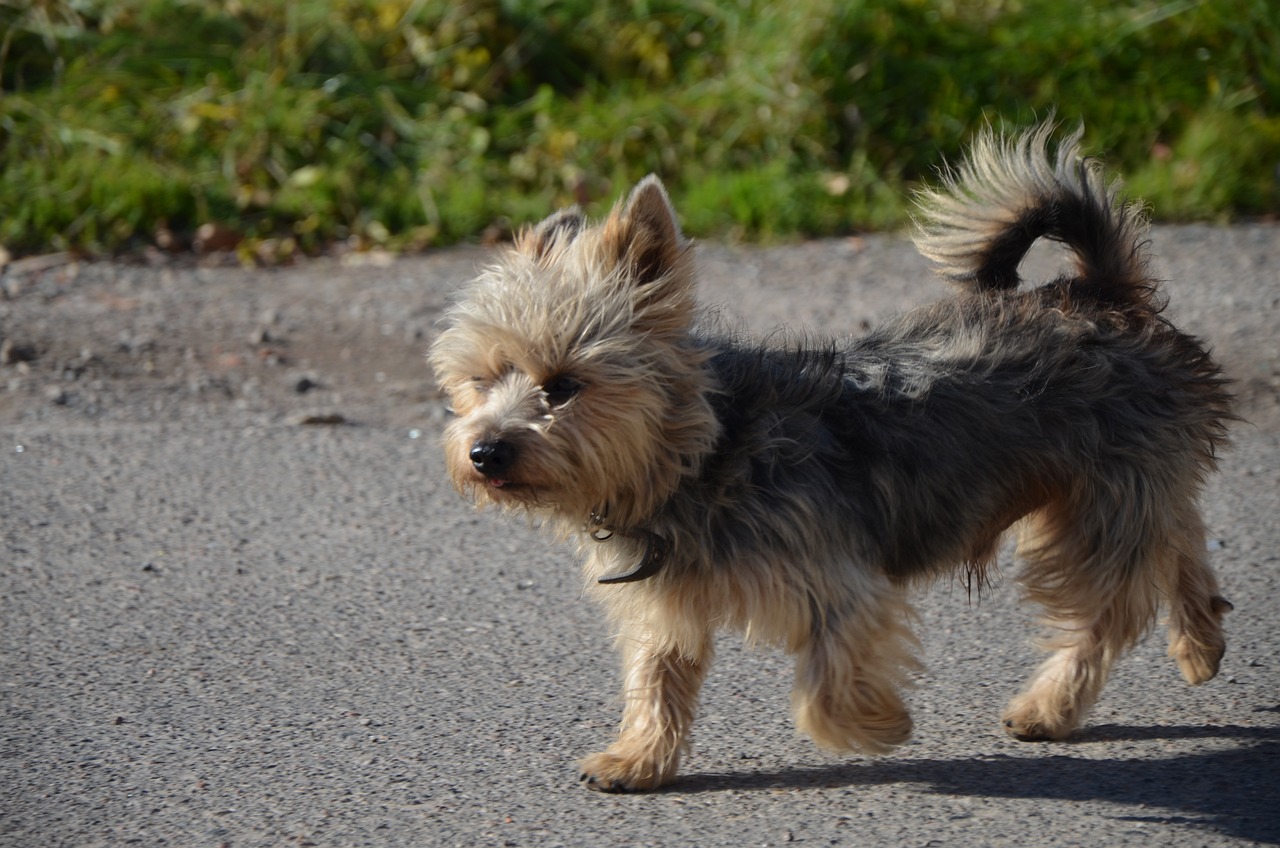The Yorkshire Terrier, affectionately known as the « Yorkie, » is one of the most popular toy breeds in the world. Known for its small size, elegant appearance, and bold personality, this breed is beloved by dog enthusiasts and families alike.
This article explores the Yorkshire Terrier’s history, physical characteristics, temperament, care needs, and health concerns.
Yorkshire Terrier : A Complete Guide to This Dog Breed
Whether you’re considering adopting a Yorkie or simply want to learn more about this charming breed, this guide provides everything you need to know.
The Origins
The Yorkshire Terrier was developed in the 19th century in Yorkshire, England, where it was bred to catch rats in mills and factories.
The breed’s origins can be traced back to working-class weavers who migrated to Yorkshire from Scotland, bringing with them small terriers that were eventually crossed with other breeds, including the Maltese and Skye Terrier. Over time, the Yorkshire Terrier evolved into a companion dog, admired for its elegant appearance and lively personality.
Fun Fact: Despite its small size, the Yorkshire Terrier retains the feisty, brave spirit of its terrier ancestors, making it a confident and often fearless dog.

Physical Characteristics
Yorkshire Terriers are known for their distinctive long, silky coat and small stature. Here’s a detailed look at their physical traits:
- Size: Yorkies are tiny dogs, typically weighing between 4-7 pounds (1.8-3.2 kg).
- Height: They stand about 7-8 inches (18-20 cm) tall at the shoulder.
- Coat Color: Yorkies have a striking coat that is steel blue on the body and tan on the face, chest, and legs. Their coat is long, straight, and silky, resembling human hair.
- Morphology: Yorkshire Terriers have a compact, well-proportioned body with a small, slightly rounded skull. Their eyes are dark, expressive, and full of intelligence. Their ears are small, erect, and V-shaped, adding to their alert and lively appearance.
- Distinctive Features: The Yorkie’s coat is one of its most defining features, requiring regular grooming to keep it looking its best. Many owners choose to keep their Yorkie’s coat trimmed short for easier maintenance, while others prefer the classic long, flowing look.
Comparison: Compared to other small breeds like the Maltese, the Yorkie’s coat has a unique steel blue and tan coloration, and it often has a more confident, assertive demeanor.
The Temperament of the Yorkshire Terrier
Yorkshire Terriers may be small in size, but they are big in personality. They are known for their bold, confident, and sometimes stubborn nature.
- Interaction with Children: Yorkies can be good with children, but due to their small size, they are best suited for families with older children who understand how to handle a small dog gently. They can be a bit territorial, so supervision is recommended when they are around younger kids.
- Behavior with Other Animals: Yorkies are generally good with other pets, especially if they are socialized from a young age. However, their terrier instincts can sometimes lead them to chase smaller animals like cats or rodents.
- Training Tips: Yorkshire Terriers are intelligent and capable of learning quickly, but they can also be stubborn and independent. Consistent, positive reinforcement training is key to ensuring a well-behaved Yorkie. They are sensitive to harsh corrections, so patience and gentleness are important during training.
Care Needs for the Yorkshire Terrier
Yorkshire Terriers require specific care to keep them healthy and happy, including grooming and exercise.
- Coat Maintenance: The Yorkie’s long, silky coat requires regular grooming to prevent tangles and mats. Daily brushing is ideal, especially for Yorkies with long coats, while those with trimmed coats need brushing several times a week. Regular baths and coat trimming are also necessary.
- Exercise Requirements: Despite their small size, Yorkies are energetic and need regular exercise. Daily walks and playtime are essential to keep them physically and mentally stimulated. They are adaptable to apartment living but still need enough activity to burn off energy.
- Hygiene and Specific Care: Due to their small mouths, Yorkies are prone to dental issues, so regular teeth brushing and dental check-ups are crucial. Their ears and eyes also need regular cleaning to prevent infections, and their nails should be trimmed regularly.
Common Health Issues
Yorkshire Terriers are generally healthy dogs, but like all breeds, they can be prone to certain health issues.
- Patellar Luxation: This condition, common in small breeds, occurs when the kneecap slips out of place. It can cause discomfort and may require surgery in severe cases.
- Dental Problems: Yorkies are prone to dental issues due to their small jaws, which can lead to overcrowded teeth and periodontal disease. Regular dental care is essential to prevent these issues.
- Hypoglycemia: Young Yorkies, especially puppies, can suffer from low blood sugar, which can be dangerous if not treated promptly. Ensuring they eat regular meals and providing proper nutrition can help prevent this.
- Life Expectancy: Yorkshire Terriers have an average lifespan of 12-15 years. Regular veterinary care, a balanced diet, and maintaining a healthy weight are key to maximizing their lifespan.
Life Expectancy and Quality of Life of Yorkshire Terriers
On average, Yorkshire Terriers live between 12 to 15 years. With proper care, they can live long, happy lives, often remaining playful and energetic well into their senior years.
- Maximizing Quality of Life: To ensure a long and healthy life for your Yorkie, provide regular exercise, mental stimulation, and a high-quality diet. Regular vet visits, dental care, and grooming are also crucial for maintaining their overall health.
Pros and Cons of Owning a Yorkshire Terrier
Advantages:
- Yorkies are small, making them ideal for apartment living or homes with limited space.
- They are loyal, affectionate, and form strong bonds with their owners.
- Their long, silky coats are hypoallergenic, making them a good choice for people with allergies.
Disadvantages:
- Yorkies require regular grooming, which can be time-consuming.
- They can be stubborn and difficult to train without consistent positive reinforcement.
- Their small size makes them fragile, so they are not always suitable for homes with very young children.
What to Know Before Adopting a Yorkshire Terrier
Yorkshire Terriers are best suited for owners who have time to dedicate to their grooming and exercise needs.
They thrive in homes where they receive plenty of attention and love. Ideal owners include individuals or families with older children who can handle a small dog gently. Yorkies do well in both apartments and houses, as long as they get sufficient exercise and mental stimulation.
Before adopting a Yorkie, it’s important to understand the breed’s grooming requirements and strong personality. Consulting with breeders or rescue organizations can help prospective owners decide if the Yorkshire Terrier is the right fit for their lifestyle.
Comparing the Yorkshire Terrier with the Maltese
Both the Yorkshire Terrier and the Maltese are small, hypoallergenic breeds with long, silky coats. However, Yorkies are generally more energetic and assertive, while the Maltese tends to have a more laid-back, affectionate personality.
The Yorkshire Terrier is a bold, affectionate, and charming companion that can fit well into a variety of living situations.
However, potential owners should be prepared for the grooming and training commitments required to care for a Yorkie properly.
Researching the breed and consulting with professionals will help ensure a happy and healthy life for both you and your Yorkshire Terrier.









